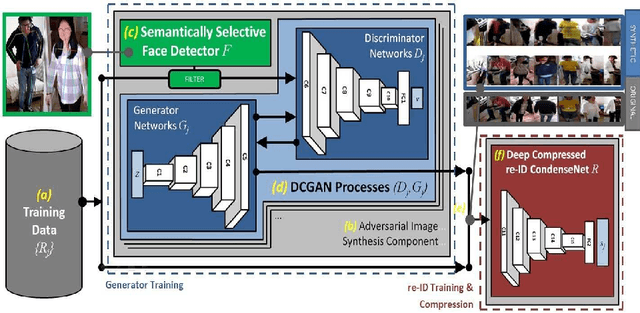Sion Hannunna
Semantically Selective Augmentation for Deep Compact Person Re-Identification
Jun 18, 2018



Abstract:We present a deep person re-identification approach that combines semantically selective, deep data augmentation with clustering-based network compression to generate high performance, light and fast inference networks. In particular, we propose to augment limited training data via sampling from a deep convolutional generative adversarial network (DCGAN), whose discriminator is constrained by a semantic classifier to explicitly control the domain specificity of the generation process. Thereby, we encode information in the classifier network which can be utilized to steer adversarial synthesis, and which fuels our CondenseNet ID-network training. We provide a quantitative and qualitative analysis of the approach and its variants on a number of datasets, obtaining results that outperform the state-of-the-art on the LIMA dataset for long-term monitoring in indoor living spaces.
 Add to Chrome
Add to Chrome Add to Firefox
Add to Firefox Add to Edge
Add to Edge